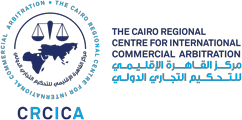Arb-Med-Arb under CRCICA
Guidance Note
Given its speed and cost-efficiency, mediation has become an established method for resolving commercial disputes. However, parties to international mediated settlement agreements are concerned about the certainty of outcome should the mediated settlement agreement be breached, and enforcement is sought before foreign courts.
To promote certainty of outcome, CRCICA encourages the parties to consider using Arb-Med-Arb (arbitration – mediation – arbitration), whether at the onset of or during arbitral proceedings.
In Arb-med-arb, parties proceed with the establishment of an arbitral tribunal, as per the terms of the underlying arbitration agreement, and can request, at any time, the suspension of proceedings to allow for mediation. A mediator will be appointed under CRCICA Mediation Rules to assist the parties reach a settlement agreement.
We strongly recommend that the parties appoint a mediator other than the arbitrator(s) to encourage full disclosure during mediation sessions which is invaluable in reaching a mutually satisfying settlement agreement. Such information can be provided during joint sessions with all parties attending, or in private meetings with the mediator. If mediation is unsuccessful, the parties need the certainty that the arbitrator(s) is not influenced by statements disclosed during mediation. This is also important to avoid potential grounds for annulment of arbitral award on account of lack of impartiality or independence of the arbitrator who acted as mediator.
If mediation is successful, the parties may resume arbitral proceedings to request the issuance of an award by consent (article 36, paragraph 1 of CRCICA Arbitration Rules). If mediation is not successful, parties will resume resolution of their conflict through arbitration and continue enjoying the benefits of using arbitration.

